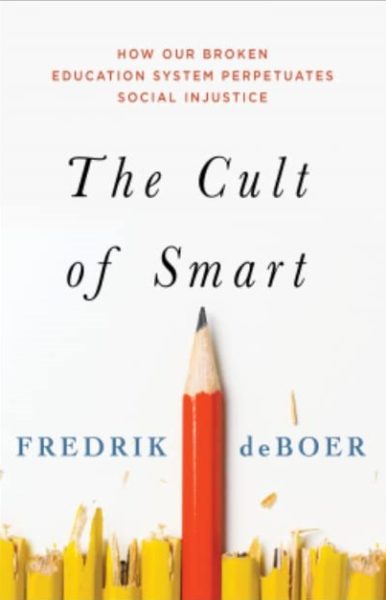Freddie deBoer was commissioned to write this for a professional publication for teachers, but it was “too hot” for the editors, so he’s posted it to his Substack instead:
There’s a bias that runs throughout our educational discourse, coming from our media, academia, and the think tanks and foundations that have such sway in education policy. It’s a bias that exists both because of a natural human desire to see every child succeed and because the structural incentives in the field make rejecting that bias professionally risky. The bias I’m talking about is optimism bias, the insistence that all problems in education are solvable and that we can fix them if only we want to badly enough. At least a half-century of research, spending, policy experimentation, and dogged effort has utterly failed to close the gaps that so vex our political class. But still we hear the same old song about how we could close those gaps tomorrow if we really wanted to, an attitude that has distorted education policy and analysis for decades.
My first book, The Cult of Smart, was a commercial failure. It was released during the height of the pandemic and thus my ability to promote it was limited, but by any measure the market rejected it. It’s tough to produce a labor of love like that and find that few people were interested in it.
But there was a silver lining: since publication in 2020 I’ve heard from dozens and dozens of teachers, thanking me for putting their thoughts to print. These educators come from public, private, and charter schools, from schools with affluent study bodies and schools that are mired in poverty, from big city school districts and from low-population regional rural schools. And again and again, these teachers shared the same perspective: they agreed with the book’s overall argument, and often had thought similar things themselves for years, but felt they could not express them publicly for fear of professional consequences.
The essential argument of the book is that overwhelming empirical evidence shows that students sort themselves into academic ability bands in the performance spectrum early in life, with remarkable consistency; that the most natural and simplest explanation for this tendency is that there is such a thing as individual academic potential; and that the most likely source of this individual academic potential is likely influenced by genes. When we look at academic performance, what we see again and again is that students perform at a given level relative to peers early in schooling and maintain that level throughout formal education. (I make that case at considerable length here.) A vast number of interventions thought to influence relative performance have been revealed to make no difference in rigorous research, including truly dramatic changes to schooling and environment. Meta-analyses and literature reviews that assess the strength of many different educational interventions find effect sizes in the range of .01 to .3 standard deviations, small by any standards and subject to all sorts of questions about research quality and randomization. Even the most optimistic reading of the research literature suggests that almost nothing moves the needle in academic outcomes. Almost nothing we try works.
This implies that common sense is correct and that individual students have their own natural or intrinsic level of academic potential, which we have no reason to believe we can dramatically change. I believe that we can change large group disparities in education (such as the racial achievement gap) by addressing major socioeconomic inequalities through government policy. But even after we eliminate racial or gender gaps, there will be wide differences between individual students, regardless of pedagogy or policy. When Black students as a group score at parity with white students, there will still be large gaps within the population of Black students or white or any other group you can name, and we have no reliable interventions to make the weakest perform like the strongest.
My book’s argument is attractive to teachers because they’ve lived under an educational ideology that insists that every student is a budding genius whose potential waits to be unlocked by a dedicated teacher – and which holds teachers to that unachievable standard. From the right, they’re subject to “no excuses” culture, the constant insistence from the education reform movement that student failures are the result of lazy and feckless teachers; from the left, they’re subject to a misguided egalitarianism that mistakes the fact that every child is important and deserves to be nurtured for the idea that every child has perfectly equal potential. The result is a system that presses teachers to deliver learning outcomes in their classrooms that they can’t possibly achieve. But many of them feel that they can’t push back, for fear of professional consequences. If they speak frankly about the fact that different students have different levels of individual potential, they’ll likely be accused of shirking their duty.




